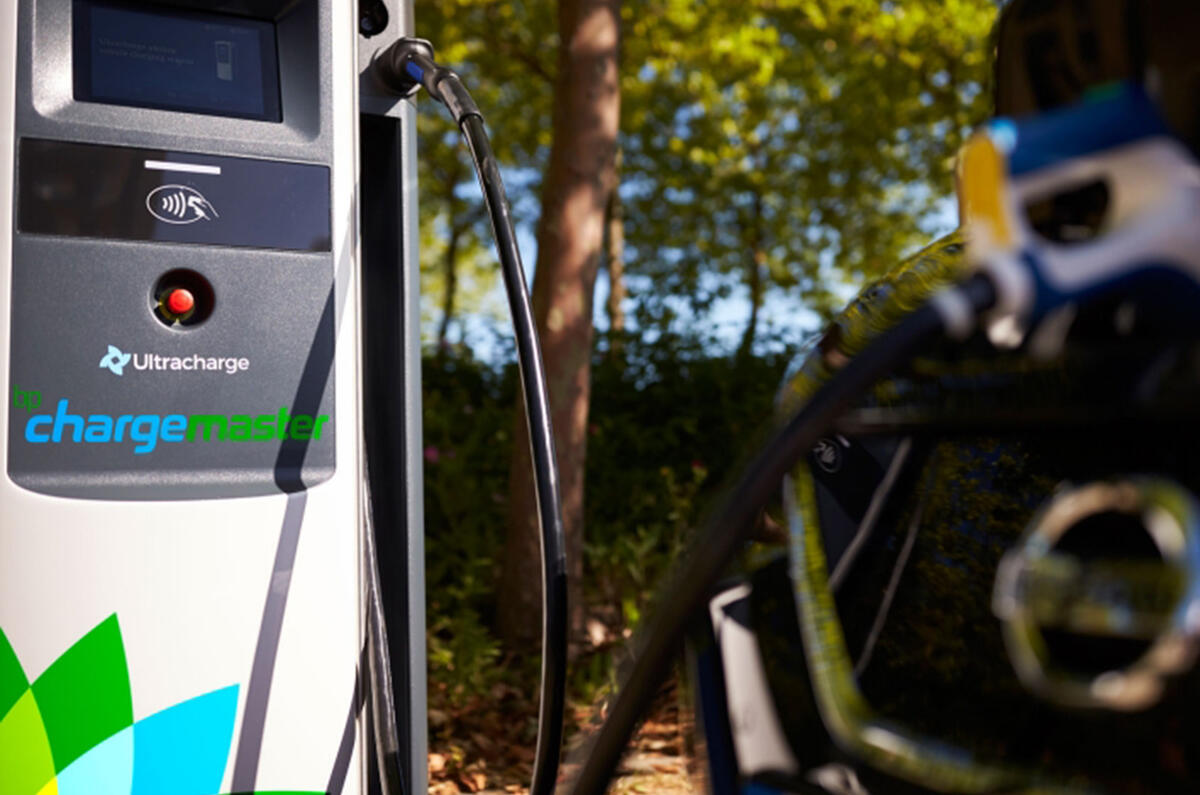BP has agreed to buy EV charging company Chargemaster for £130 million, bringing the 6500 EV charger network - the largest in the UK - under its control.
Chargemaster will change its name to BP Chargemaster and BP will begin installation of Chargemaster points across some of its 1200 forecourts within the next year, with the goal of having Chargemaster facilities at every BP location, although Chargemaster wouldn't disclose within what timeframe. BP’s investment in Chargemaster will continue as the company grows. Originally, Chargemaster planned a stock market flotation, but BP offered the takeover as an alternative.
BP has also announced that BP Chargemaster will install the first 150kW fast chargers — that's 30kW up on Tesla’s current Supercharger system, but 150kW less than the second-generation Supercharger's mooted output and 200kW down on the Europe-wide charge network of Ionity, a collaboration between rival Shell, BMW, Daimler, Ford and the Volkswagen Group. Pod Point is currently also working on 150kW chargers for its public network, with the first examples being rolled out imminently.
Chargemaster boss David Martell said the takeover would allow Chargemaster to grow, supported by BP’s resources: “I am truly excited to lead the Chargemaster team into a new era backed by the strength and scale of BP, which will help us maintain our market-leading position and grow the national Polar charging network to support the large range of exciting new electric vehicles that are coming to market in the next couple of years.”
BP predicts that the number of EVs on UK roads will increase 89-fold by the time the Government’s ban on non-hybrid petrol and diesel vehicles comes into force in 2040, with 12 million estimated to be registered between now and that date, compared with 135,000 registered in 2017, and one million predicted by 2022.
Chargemaster CEO David Martell predicts that under new owner BP, the company will grow ten-fold within the next five years. “By partnering with BP, we get the muscle to expand in the way that we want to.”
The brand’s current rate of installation is around 100 new chargers per month, but the company’s rate of expansion means it’s expected to double in size in the next two or three years. It’ll continue to grow at the rate of expansion of the EV car market, Martell said, but has already invested in a new, 60,000 square-foot factory in Milton Keynes.
Tufan Erginbilgic, BP’s product and service chief, said: “Combining BP’s and Chargemaster’s complementary expertise, experience and assets is an important step towards offering fast and ultra-fast charging at BP sites across the UK and to BP becoming the leading provider of energy to low-carbon vehicles, on the road or at home.”
Chargemaster runs the Polar charge scheme, which has 40,000 members in the UK.
Erik Fairbairn, founder of Chargemaster rival and EV charger supplier Pod Point, said: "The acquisition of Chargemaster by BP is testament to the fact that the future of transport is electric. Traditional oil companies know that they cannot afford to ignore this shift from internal combustion engine vehicles. At Pod Point, we've always highlighted how EV technology is advancing so rapidly that, within just a few years, they will become the natural choice for anyone buying a car. Today's news shows that this is becoming an increasingly mainstream view. It’s obviously exciting to see the rapid acceleration of the EV market.”




Join the debate
Add your comment
Gargae
See above.
BP Super Charges
Over the whole EV hybrid debate(argument) there has been very little input from electrical engineers who should know the answers to our questions. A reality check is needed because no matter what we grow or manufacture there is an emission level associated to this activity.Just because we accept that the EV travels with no emissions aren't we forgeting the process to manufacture the components of the car?Now to install the electrical network for all BP stations in the UK is surely going to effect local power supply stability.It's like the internet,at certain times of day downloads of movies etc slow the speed of the internet because of bandwidth restrictions,and the congestion of users,just like a motorway in peak hours.Surely there msut be an independant expert to provide transparcey into what the power network can handle etc etc,because if it's insufficent then why are we acting like lemmings and pursueing an impossible dream?
Indeed scotty5
the beginning of clean air for our kids to breathe, free from hydrocarbons, carbon dioxide and carbon particles. Since the technology already exists, the delay in banning combustion cars is totally unacceptable.
Robbo